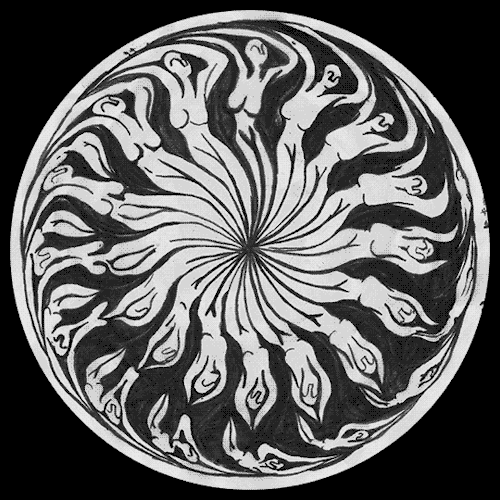Maybe if the weenie had told everyone "I'm President and you're not" (while using his GRRRR face, of course), they might have listened.......
Trump Becomes Ensnared in Fiery G.O.P. Civil War
By
GLENN THRUSH and MAGGIE HABERMAN
WASHINGTON —Trump
ignites a lot of fights, but the biggest defeat in his short time in the White
House was the result of a long-running Republican civil war that had already
humbled a generation of party leaders before him.
A precedent-flouting president
who believes that Washington’s usual rules and consequences of politics do not
apply to him, Mr. Trump now finds himself shackled by them.
In stopping the repeal of the
Affordable Care Act, the Republican Party’s professed priority for
the last seven years, the rebellious far right wing of his party out-rebelled
Mr. Trump, and won a major victory on Friday over the party establishment that
he now leads.
Like every other
Republican leader who has tried to rule a fissured and fractious party, Mr.
Trump faces a wrenching choice: retrenchment or realignment. Does he cede power
to the anti-establishment wing of his party? Or does he seek other pathways to
successful governing by throwing away the partisan playbook and courting a
coalition with the Democrats he has improbably blamed for his party’s
shortcomings?
“It’s really a problem
in our own party, and that’s something he’ll need to deal with moving forward,”
said Representative Tom Cole, a moderate Republican from Oklahoma who is part
of the center-right Tuesday Group, which stuck with Mr. Trump in the health
care fight and earned the president’s praise in the hours after the bill’s
defeat.
“I think he did a lot
— he met with dozens and dozens of members and made a lot of accommodations —
but in the end there’s a group of people in this party who just won’t say
‘yes,’” Mr. Cole said. “At some point I think that means looking beyond our
conference. The president is a deal maker, and Ronald Reagan cut some of his
most important deals with Democrats.”
Mr. Trump is not there yet. So
far he is operating from the standard-issue Republican playbook. While he is
angry and thirsty for revenge, he seems determined to swallow the loss in hopes
of marshaling enough Republican support to pass spending bills, an as-yet
unformed tax overhaul and a $1 trillion infrastructure package.
On Friday evening, a somewhat shellshocked Trump retreated to the White House residence to grieve and assign blame. He asked his advisers repeatedly: Whose fault was this?
Increasingly, that blame has fallen on Reince Priebus, the White House chief of staff, who coordinated the initial legislative strategy on the health care repeal with Speaker Paul D. Ryan, his close friend and a fellow Wisconsin native, according to three people briefed on the president’s recent discussions.
Mr. Trump, an image-obsessed developer with a lifelong indifference toward the mechanics of governance, made a game effort of negotiating with members of the far-right Freedom Caucus, even if it seemed to some members of that group, who spoke on the condition of anonymity, that he did not have the greatest grasp of health care policy or legislative procedure.
He told one adviser late Friday that his loss — a legislative debacle foreshadowed by the intraparty fight that led to the 2013 government shutdown — was a minor bump in the road and that the White House would recover.

But his advisers were more realistic. Mr. Trump’s chief strategist, Stephen K. Bannon, according to people familiar with White House discussions, described what happened as a flat-out failure that could inflict serious damage on this presidency — even if Mr. Bannon believes Congress, not Mr. Trump, deserves much of the blame.
Mr. Bannon and the president’s more soft-spoken legislative affairs director, Marc Short, pushed Mr. Trump hard to insist on a public vote, as a way to identify, shame and pressure “no” voters who were killing their last, best chance to unravel the health care law.
One Hill Republican aide who was involved in the last-minute negotiations said Mr. Bannon and Mr. Short were seeking to compile an enemies list. But Mr. Ryan repeatedly counseled the president to avoid seeking vengeance — at least until he has passed spending bills and a debt-ceiling increase needed to keep the government running.
On Friday evening, a somewhat shellshocked Trump retreated to the White House residence to grieve and assign blame. He asked his advisers repeatedly: Whose fault was this?
Increasingly, that blame has fallen on Reince Priebus, the White House chief of staff, who coordinated the initial legislative strategy on the health care repeal with Speaker Paul D. Ryan, his close friend and a fellow Wisconsin native, according to three people briefed on the president’s recent discussions.
Mr. Trump, an image-obsessed developer with a lifelong indifference toward the mechanics of governance, made a game effort of negotiating with members of the far-right Freedom Caucus, even if it seemed to some members of that group, who spoke on the condition of anonymity, that he did not have the greatest grasp of health care policy or legislative procedure.
He told one adviser late Friday that his loss — a legislative debacle foreshadowed by the intraparty fight that led to the 2013 government shutdown — was a minor bump in the road and that the White House would recover.

But his advisers were more realistic. Mr. Trump’s chief strategist, Stephen K. Bannon, according to people familiar with White House discussions, described what happened as a flat-out failure that could inflict serious damage on this presidency — even if Mr. Bannon believes Congress, not Mr. Trump, deserves much of the blame.
Mr. Bannon and the president’s more soft-spoken legislative affairs director, Marc Short, pushed Mr. Trump hard to insist on a public vote, as a way to identify, shame and pressure “no” voters who were killing their last, best chance to unravel the health care law.
One Hill Republican aide who was involved in the last-minute negotiations said Mr. Bannon and Mr. Short were seeking to compile an enemies list. But Mr. Ryan repeatedly counseled the president to avoid seeking vengeance — at least until he has passed spending bills and a debt-ceiling increase needed to keep the government running.

Trump and his team lamented outsourcing so much of the early bill drafting to Mr. Ryan, and one aide compared their predicament to a developer who has staked everything on obtaining a property without conducting a thorough inspection.
Despite Trump’s public displays of unity with the speaker, his team was privately stunned by Mr. Ryan’s inability to master the politics of his own conference, according to two West Wing aides. Trump, they said, is still sizing up Mr. Ryan’s abilities, despite Mr. Trump’s public statements of support.
As the dust settled on the health care debacle, it was clear that Mr. Trump’s lieutenants in the Republican civil war had been divided on how they thought the health care fight should have been handled, which does not augur well for the political battles to come.

Mutual disgust with the Freedom Caucus seems to be pulling Mr. Trump and Mr. Ryan together, at least for now — just as it briefly united President Barack Obama and John A. Boehner, Mr. Ryan’s long-suffering predecessor, during their doomed effort to reach a “grand bargain” on a tax overhaul in 2011.
In a meeting before the Republican House conference convened on Thursday night, Mr. Trump’s team met for two hours of negotiations with Freedom Caucus members, leaving them sour and frustrated at the ever-changing list of demands emerging from the group’s leader, Representative Mark Meadows of North Carolina.
Many on Mr. Trump’s team disengaged from the process even as he dug in.
Gary D. Cohn, Mr. Trump’s top economic adviser, had originally been tasked with playing a large role in shepherding the legislation from the White House side. But Mr. Cohn had grown leery of the bill, and the White House recognized that Mr. Cohn, a former president of Goldman Sachs and a liberal Democrat, was not a good messenger to deal with recalcitrant conservatives.

Mr. Trump had told allies on Wednesday night that if he did not push for the bill himself, it would not pass. Several, speaking on the condition of anonymity, expressed astonishment that the president had not come to that realization much earlier.
Until the final week, Mr. Trump’s team was deeply divided over whether he should fully commit to a hard sell on a bill they viewed as fundamentally flawed, with Vice President Mike Pence pointedly advising the president to label the effort “Ryancare,” not “Trumpcare,” according to aides.

Several aides advised him the argument was nonsensical, according to a person with knowledge of the interaction.
For Mr. Trump’s Republican opponents, here was poetic revenge served cold. As a candidate in 2016, he initially scoffed at signing a Republican loyalty pledge, at times behaving more like an independent invading the Republican host organism than a normal presidential candidate.
As president, Mr. Trump has left dozens of critical administration jobs unfilled, rejecting stalwart Republican applicants deemed insufficiently loyal to him — and now he is decrying the disloyalty of the 20 to 30 conservative members who outmaneuvered and overpowered him on health care.
“We all learned a lot — we learned a lot about loyalty,” a solemn Mr. Trump told reporters late Friday.
“We were a 10-year opposition party,” Mr. Ryan said late Friday. “Being against things was easy to do.”

“Do you think Donald J. Trump goes home tonight, shrugs and says, ‘This is what winning looks like’?” Mr. Gingrich added. “No! But this is where the Republican Party is right now, and it’s been this way for years.”
But Mr. Trump put on his best face on Saturday morning. “ObamaCare will explode and we will all get together and piece together a great healthcare plan for THE PEOPLE,” he said on Twitter. “Do not worry!”


No comments:
Post a Comment